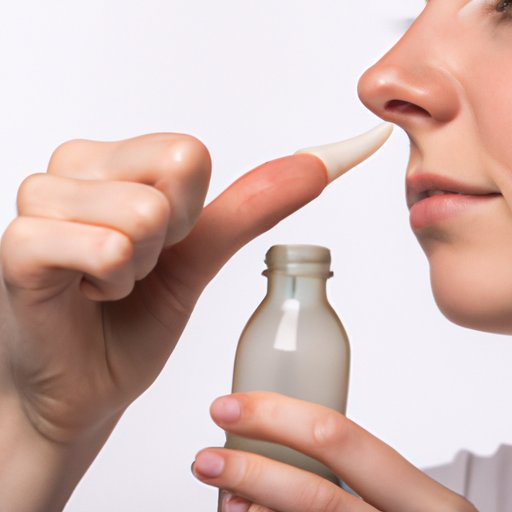
Introduction
Having a runny nose is a common problem that can be quite frustrating and disruptive to daily life. Whether caused by a cold, allergies, or other factors, a runny nose can interfere with breathing, sleeping, and overall comfort. In this article, we’ll explore various methods for treating and preventing a runny nose that you can try in the comfort of your own home.
Causes and Treatment Options
There are many potential underlying causes of a runny nose, and treatment options can vary depending on the root cause. Colds and allergies are two of the most common culprits. If your runny nose is brought on by a cold virus, you may want to try Echinacea, a herb that can help boost your immune system. If you suffer from allergies, you might try an antihistamine or a nasal spray. However, it is important to consult with your doctor before taking any medication. Nasal sprays, decongestants and saline rinses are also effective remedies. Nasal sprays can help clear the nasal passages and reduce inflammation, while decongestants can help shrink swollen nasal tissues. Saline rinses can also help flush out excess mucus and reduce congestion. Proper dosage and correct use of medication are critical to ensure the best results. In some cases, your runny nose might be a sign of a more serious condition, so don’t hesitate to see a doctor if you have concerns.
Natural Remedies
Natural remedies can offer a gentler, more holistic approach to treating a runny nose. For example, Vitamin C is known for its immune-boosting properties and can help reduce inflammation. You can try increasing your consumption of Vitamin C-rich foods, such as oranges, broccoli, and strawberries, or take a supplement as long as it is authorized by your doctor. Similarly, drinking herbal teas such as ginger or peppermint tea can help clear out the sinuses. However, it is important to research the benefits and potential risks of any natural remedy before trying it.
Prevention Tips
Preventing a runny nose often involves making some simple lifestyle changes. Getting regular exercise, making healthy and nutritious choices, and avoiding triggers like smoking or exposure to environmental allergens are just a few ways to keep your nasal passages clear. You might also try using a humidifier to keep the air moist and avoid drying out your nasal tissues. If you suspect allergies are the cause of your runny nose, try removing possible allergens from your home like dust and pollen.
Over-The-Counter Medications
Over-the-counter medications can be effective for relieving a runny nose. Antihistamines are commonly used for treating allergies, while nasal sprays and decongestants can provide relief for colds. Nasal decongestants are available in spray, drop or nebulizer forms. However, it is important not to overuse medications, as this can lead to side effects such as dizziness, drowsiness or high blood pressure.
Proper Nose-Blowing Techniques
Believe it or not, there is a right way to blow your nose that can help reduce the severity of a runny nose. First, make sure you blow your nose gently and don’t press too hard, which can force mucus further up the nasal passages. Second, use a soft tissue or a warm cloth to avoid any irritation or damage to your skin. If your nose is irritated and sensitive, you might prefer using a saline rinse to clear out your nasal passages instead.
Conclusion
A runny nose is a common problem, but it doesn’t have to ruin your day. There are many remedies and treatments you can try to alleviate your symptoms and promote healing. Keep in mind that it is important to consult with your doctor before trying any new remedy or treatment. With these tips and techniques, you can get back on track to feeling your best and breathing easy.





